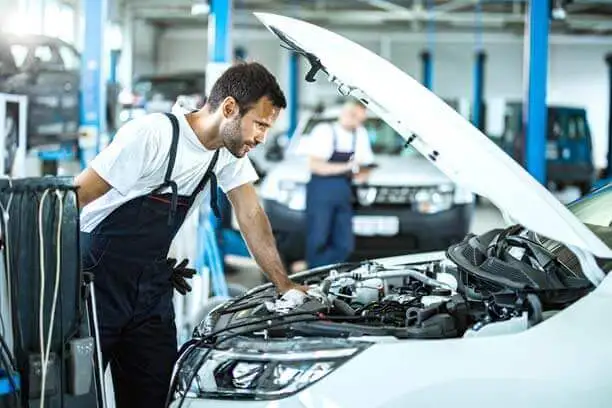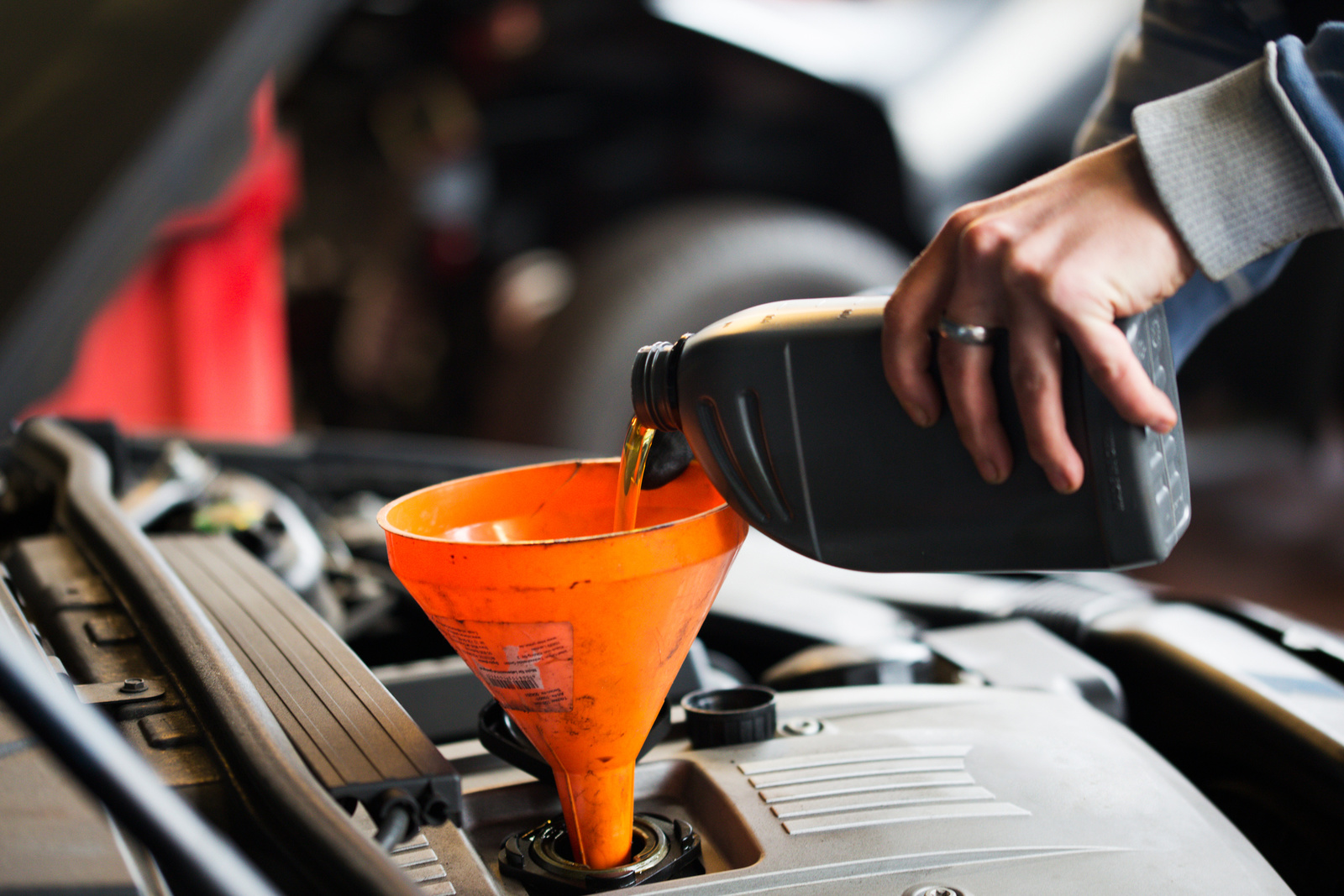All Categories
Featured
The transmission is one of one of the most important components in a car, liable for moving power from the engine to the wheels. Whether your cars and truck has a hands-on or automated transmission, correct maintenance is necessary to ensure it operates efficiently and successfully. Without normal care, transmission troubles can result in expensive repair services and unexpected failures. Below's what you need to understand about transmission repairs and upkeep to keep your vehicle in leading form.
Automatic transmissions contain numerous components such as the torque converter, planetary gears, shutoff body, and clutch packs, all of which interact to move power. Hands-on transmissions, on the other hand, make use of a simpler collection of equipments and a clutch that the motorist must operate. Both kinds of transmissions call for routine maintenance to maintain every little thing running efficiently.
Sliding Gears: If your vehicle all of a sudden changes equipments, or if it has a hard time to move smoothly, the transmission could be sliding. This can be an indicator of reduced liquid degrees or interior wear. Unusual Sounds: Grinding, whining, or clunking sounds while driving or shifting gears can suggest a trouble with the transmission, such as damaged components or reduced fluid. Delayed or Harsh Shifting: If the car thinks twice or changes about in between equipments, it might imply there's an issue with the transmission's control system or low fluid. Leaking Fluid: Transmission liquid is usually bright red, and leakages can be an indication that a seal or gasket needs replacement. Warning Lights: A transmission-related warning light on the control panel frequently shows a breakdown. This can be set off by various issues, consisting of fluid problems or sensor malfunctions. 3. The Importance of Regular Transmission Maintenance. Routine maintenance is key to prolonging the life of your car's transmission and avoiding major issues in the future. Below are a few important upkeep jobs that must be performed occasionally:
Liquid Adjustments: Transmission fluid serves as both a lubricant and a coolant for the transmission system. With time, the liquid can come to be polluted or break down, resulting in bad efficiency or damages. Regular fluid changes are necessary to make certain that the transmission remains to operate efficiently. Fluid Degree Checks: Reduced transmission liquid degrees can trigger the transmission to overheat and lead to substantial damage. It is very important to routinely examine the liquid degrees and top them off as required. Filter Replacements: The transmission filter helps keep debris and contaminants out of the transmission liquid. Replacing the filter at regular intervals will aid guarantee correct fluid circulation and protect against unnecessary endure the transmission. 4. Transmission Repair vs. Substitute. When a transmission starts to fail, the next action is usually determining in between a fixing and a full replacement. Minor problems, such as a fluid leak or a damaged sensing unit, might just require a straightforward repair work. Nonetheless, if there is serious damages to the transmission's interior elements, such as the equipments or torque converter, a complete substitute may be needed.
![]()
Transmission replacements can be costly, however they are in some cases more affordable than repairing a seriously harmed unit. An experienced mechanic will be able to assess the circumstance and use the very best training course of activity for your car.
![]()
Seek a store that utilizes sophisticated diagnostic equipment to recognize concerns and has experience working with your automobile's make and model. A trustworthy shop will likewise supply a warranty on their work, giving you comfort that any type of substitutes or repair work are covered.
While it may be alluring to delay transmission fixings to conserve money, ignoring the trouble can cause a lot more extreme damage and greater repair prices in the future. It's constantly best to resolve transmission problems immediately to prevent extensive damage and costly repair work.
Final thought. Transmission repair services and maintenance are necessary to keeping your automobile running smoothly and protecting against significant problems. Regular liquid adjustments, inspections, and dealing with warning signs early can assist expand the life of your transmission and stay clear of pricey fixings.
- Recognizing the Transmission System. The transmission is basically the system that permits your vehicle to move equipments, allowing it to relocate at various rates. In an automated transmission, the automobile moves equipments immediately, whereas a manual transmission requires the vehicle driver to change equipments by hand using the clutch and equipment stick.
Automatic transmissions contain numerous components such as the torque converter, planetary gears, shutoff body, and clutch packs, all of which interact to move power. Hands-on transmissions, on the other hand, make use of a simpler collection of equipments and a clutch that the motorist must operate. Both kinds of transmissions call for routine maintenance to maintain every little thing running efficiently.
- Indications You Need Transmission Maintenance or Services. There are numerous signs that your automobile might require transmission repairs or upkeep. It's important to speak with an expert technician as quickly as feasible: if you notice any of the following concerns.
Sliding Gears: If your vehicle all of a sudden changes equipments, or if it has a hard time to move smoothly, the transmission could be sliding. This can be an indicator of reduced liquid degrees or interior wear. Unusual Sounds: Grinding, whining, or clunking sounds while driving or shifting gears can suggest a trouble with the transmission, such as damaged components or reduced fluid. Delayed or Harsh Shifting: If the car thinks twice or changes about in between equipments, it might imply there's an issue with the transmission's control system or low fluid. Leaking Fluid: Transmission liquid is usually bright red, and leakages can be an indication that a seal or gasket needs replacement. Warning Lights: A transmission-related warning light on the control panel frequently shows a breakdown. This can be set off by various issues, consisting of fluid problems or sensor malfunctions. 3. The Importance of Regular Transmission Maintenance. Routine maintenance is key to prolonging the life of your car's transmission and avoiding major issues in the future. Below are a few important upkeep jobs that must be performed occasionally:
Liquid Adjustments: Transmission fluid serves as both a lubricant and a coolant for the transmission system. With time, the liquid can come to be polluted or break down, resulting in bad efficiency or damages. Regular fluid changes are necessary to make certain that the transmission remains to operate efficiently. Fluid Degree Checks: Reduced transmission liquid degrees can trigger the transmission to overheat and lead to substantial damage. It is very important to routinely examine the liquid degrees and top them off as required. Filter Replacements: The transmission filter helps keep debris and contaminants out of the transmission liquid. Replacing the filter at regular intervals will aid guarantee correct fluid circulation and protect against unnecessary endure the transmission. 4. Transmission Repair vs. Substitute. When a transmission starts to fail, the next action is usually determining in between a fixing and a full replacement. Minor problems, such as a fluid leak or a damaged sensing unit, might just require a straightforward repair work. Nonetheless, if there is serious damages to the transmission's interior elements, such as the equipments or torque converter, a complete substitute may be needed.

Transmission replacements can be costly, however they are in some cases more affordable than repairing a seriously harmed unit. An experienced mechanic will be able to assess the circumstance and use the very best training course of activity for your car.
- Selecting the Right Auto Mechanic for Transmission Service. Not all automobile service center are geared up to handle transmission repair work, specifically for contemporary cars with complicated automatic transmissions. When choosing a repair work shop, it's vital to select one with technicians who focus on transmission diagnostics and repair services.

Seek a store that utilizes sophisticated diagnostic equipment to recognize concerns and has experience working with your automobile's make and model. A trustworthy shop will likewise supply a warranty on their work, giving you comfort that any type of substitutes or repair work are covered.
- Cost of Transmission Repairs. The expense of transmission repair services can vary extensively, relying on the kind of repair required and the make and version of the automobile. Minor repairs, such as dealing with a liquid leak or changing a sensing unit, are typically more budget-friendly. Major repairs or a complete transmission substitute can be costly.
While it may be alluring to delay transmission fixings to conserve money, ignoring the trouble can cause a lot more extreme damage and greater repair prices in the future. It's constantly best to resolve transmission problems immediately to prevent extensive damage and costly repair work.
Final thought. Transmission repair services and maintenance are necessary to keeping your automobile running smoothly and protecting against significant problems. Regular liquid adjustments, inspections, and dealing with warning signs early can assist expand the life of your transmission and stay clear of pricey fixings.
Latest Posts
Boost Your Home's Outside with Weathercraft's Home siding Solutions
Published May 26, 25
1 min read
Discover WyHy Federal Credit Union – Trusted Financial Solutions for Your Financial Success
Published May 24, 25
1 min read
Discover Affordable Auto Repairs with Montclare’s Exclusive Service Specials
Published May 23, 25
1 min read
More
Latest Posts
Boost Your Home's Outside with Weathercraft's Home siding Solutions
Published May 26, 25
1 min read
Discover WyHy Federal Credit Union – Trusted Financial Solutions for Your Financial Success
Published May 24, 25
1 min read
Discover Affordable Auto Repairs with Montclare’s Exclusive Service Specials
Published May 23, 25
1 min read